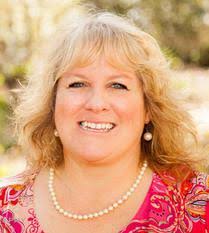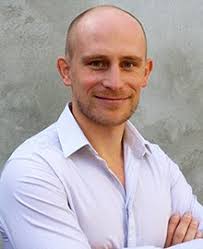Doing Experiential and Process-Based Therapy
This workshop has closed due to reaching its registration maximum.


Matthieu Villatte, Ph.D.
In acceptance and commitment therapy as well as other third-wave therapies the combination of mindfulness, values, and behavioral commitment processes have well -served clients to make positive life change. While wide dissemination of these interventions has occurred over the past decade, their application within a truly experiential and process-oriented framework often remains challenging for therapists. The desire for transparency, the need to make rapid progress, the requirements to rely heavily on manualized protocols, or simply the difficulty of transforming theoretical knowledge into concrete practice as well as a focus on techniques disconnected from process, can lead therapists to be too directive and didactic, or conversely, abstract and confusing. The larger processes occurring within and across the therapy can be lost to techniques and standard exercises. The experiential nature and process of therapy no longer bringing vitality to the work. The opportunity to develop the autonomy of clients in the sometimes subtle and pragmatic observation of their experience and the flexible and effective practice of the clinician is thereby undermined. Experiential techniques lose their power of deep transformation; exchanges become less personal and meaningful; therapeutic work becomes less interesting and satisfying even to the therapist, and the therapeutic relationship is lost to application of impersonal procedures.
The goal of this training is to assist you in developing or furthering your skill in experiential and process-oriented practice. Focus on the therapeutic relationship with emphasis on recognizing interpersonal and intrapersonal processes that can guide intervention will be explored. We will build on the principles of contextual behavioral science and relational frame theory, which have been particularly well developed for clinical work in ACT, but are adaptable to all 3rd wave approaches (ex. Mindfulness-based therapies, dialectical behavior therapy, meta-cognitive therapy) and experiential therapies in general (e.g. psychodynamic, hypnosis, gestalt).
What will you learn in this course?
- Grounding your clinical practice in a stance of curiosity, openness, and equality.
- Relying on the therapeutic process rather than on techniques topographically defined to carry your sessions.
- Doing experiential work grounded in the interpersonal and intrapersonal context.
- Doing experiential work without reliance on standard metaphors and exercises, in natural conversations with your clients.
- Selecting, building, and delivering experiential exercises and metaphors that are linked to the client’s experience and housed in the therapeutic relationship.
Through practical exercises, demonstrations, and role plays:
- You will learn to shape your clients’ ability to be in touch with and observe their own experiences, and to draw conclusions adapted to their personal life choices (e.g. how to evoke observation rather than using didactic psycho-education).
- You will develop the ability to adapt to any situation without departing from your experiential stance (e.g. how not to fall into excessive explanations or battles of arguments with dependent, rigid, overly compliant or stuck clients).
- You will learn to engage process inside of an effective interpersonal relationship using experiential exercises and metaphors in a way that strengthens the therapeutic relationship (e.g. how to co-develop metaphors with the client and how to integrate them into a natural conversation).
About Matthieu Villatte, Ph.D.:
Matthieu Villatte, Ph.D. is an Assistant Professor at Bastyr University in Seattle, WA in the United States.
He obtained his doctoral degree in psychology in France, where he was trained as a clinical psychologist. He moved to the US in 2010 to complete a post-doctoral fellowship at the University of Nevada, Reno under the mentorship of Steven Hayes, PhD. He then worked as an assistant professor in clinical psychology at the University of Louisiana and at the Evidence-Based Practice Institute of Seattle for several years. He joined Bastyr University as an Assistant Professor in 2018.
Matthieu Villatte is the author of numerous books and chapters on mindfulness, acceptance, experiential therapies, and contextual behavioral science, such as the first manual published in French on Acceptance and Commitment Therapy and Mastering the Clinical Conversation: Language as Intervention, co-authored by Jennifer Villatte and Steven Hayes.
He is also a peer-reviewed trainer in Acceptance and Commitment Therapy recognized by the Association for Contextual Behavioral Science (ACBS). He has facilitated over a hundred clinical trainings in the US, Canada, Australia-New Zealand, South America, and Europe. Over the past few years, he has also run dozens of online trainings gathering participants from all continents.
About Robyn D. Walser, Ph.D.:
Robyn D. Walser, Ph.D. is Director of TL Consultation Services, staff at the National Center for PTSD, co-director of the Bay Area Trauma Recovery Center and is Associate Clinical Professor at University of California, Berkeley. As a licensed clinical psychologist, she maintains an international training, consulting and therapy practice. Dr. Walser is an expert in Acceptance and Commitment Therapy (ACT) and has co-authored 4 books on ACT including Learning ACT, 2nd Edition, The Mindful Couple, Acceptance and Commitment Therapy for the Treatment of Posttramatic Stress disorder and ACT for Clergy and Pastoral Counselors: Using Acceptance and Commitment Therapy to Bridge Psychological and Spiritual Care. A fifth book: The Heart of ACT will be released in 2019. She also has expertise in traumatic stress and substance abuse and has authored a number of articles, chapters and books on these topics. She has been doing ACT workshops since 1998; training in multiple formats and for multiple client problems. Dr. Walser has presented her research findings and papers at international and national conferences, universities and hospital settings; and she has been invited to international conferences to speak about ACT. She is invested in developing innovative ways to translate science-into-practice and continues to do research and education on dissemination of ACT and other therapies. She has had a number of leadership roles in international and national organizations and she served as Member At Large and President for the Association for Contextual and Behavioral Science.
Learning Objectives:
- Describe and implement the components of the contextual behavioral therapeutic process
- Describe and implement the components of the experiential therapeutic stance
- Implement techniques connecting the therapeutic process to the client’s life
- Describe the components of the experiential work on awareness
- Implement process and techniques helping clients observe and describe psychological experiences
- Implement process and techniques helping clients track functional relationships among experiences
- Demonstrate multiple processes and how to bring them into therapeutic relationship and practice
- Implement perspective taking techniques increasing the client’s awareness
- Describe the utility of context and how it functions in therapy
- Implement techniques to build experiential metaphors with the client
- Learn to attend to interpersonal and intrapersonal processes that can help guide the therapy
Target Audience: Intermediate, Advanced, Clinical
Components: Conceptual analysis, Literature review, Experiential exercises, Didactic presentation, Case presentation, Role play
Package Includes: A general certificate of attendance, lunch, and twice daily coffee/tea break on site.

